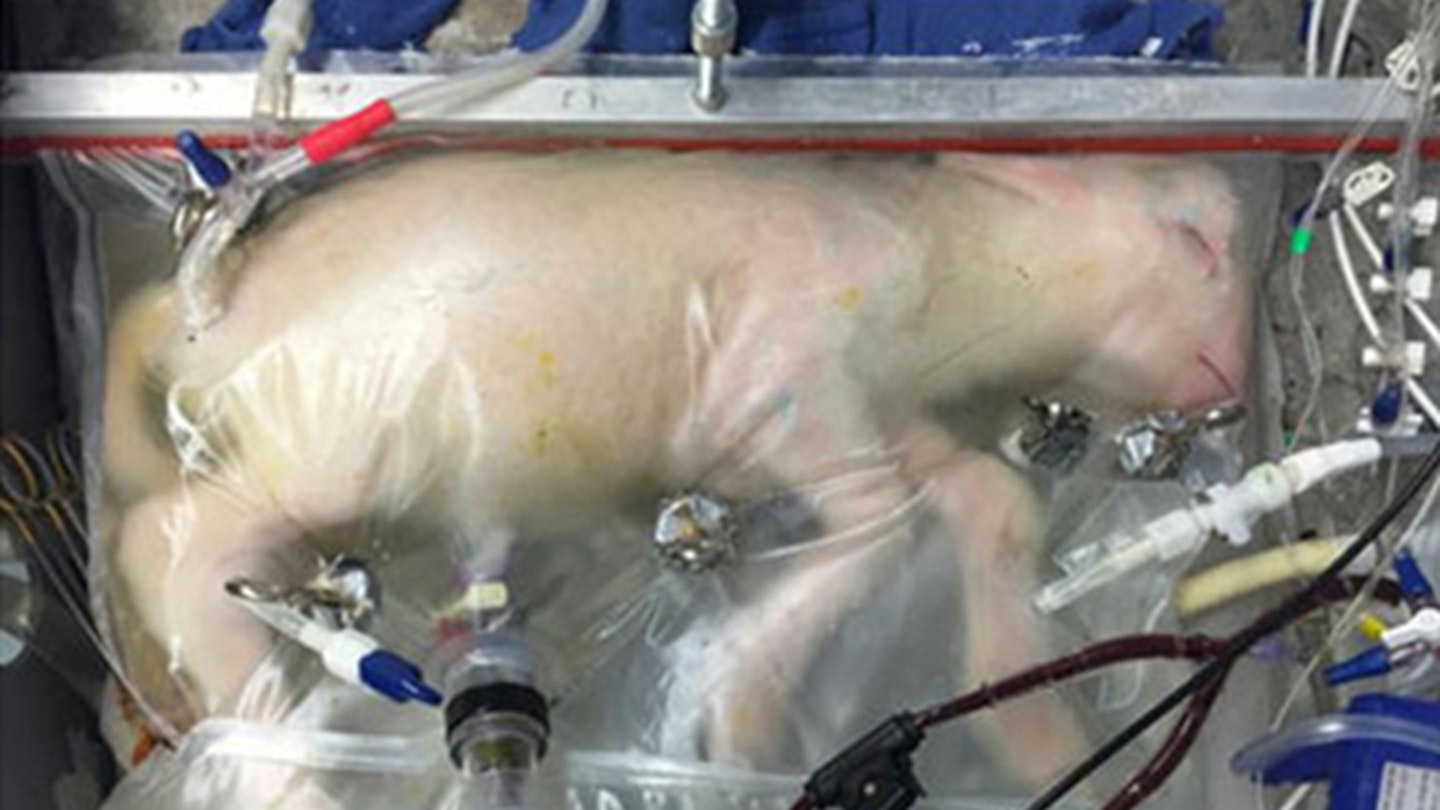An American research team have created an "artificial womb" that could help critically premature babies to continue growing
WARNING: THIS ARTICLE CONTAINS IMAGES THAT SOME READERS MAY FIND SHOCKKING
Scientists in America have made a breakthrough in research into premature births, creating an "artificial womb" with success when tested with premature lambs.
The paediatric research team at The Children's Hospital of Philadelphia (CHOP) have made the "womb" by mimicking the "fluid-filled" environment that are found inside the womb during pregnancy.
This has allowed premature lambs to continue growing and developing their vital organs, meaning there could be hope for premature human babies.

When tested with the lambs, the system worked by keeping the foetus in a fluid-filled container which was attached to machines that provided physiological support.
The lambs themselves were kept in a temperature-controlled environment and breathed amniotic fluid as they would have done if they were still in the womb, alongside a gas-exchange machine.
The team were able to monitor their vital signs and blood flow, amongst other things.
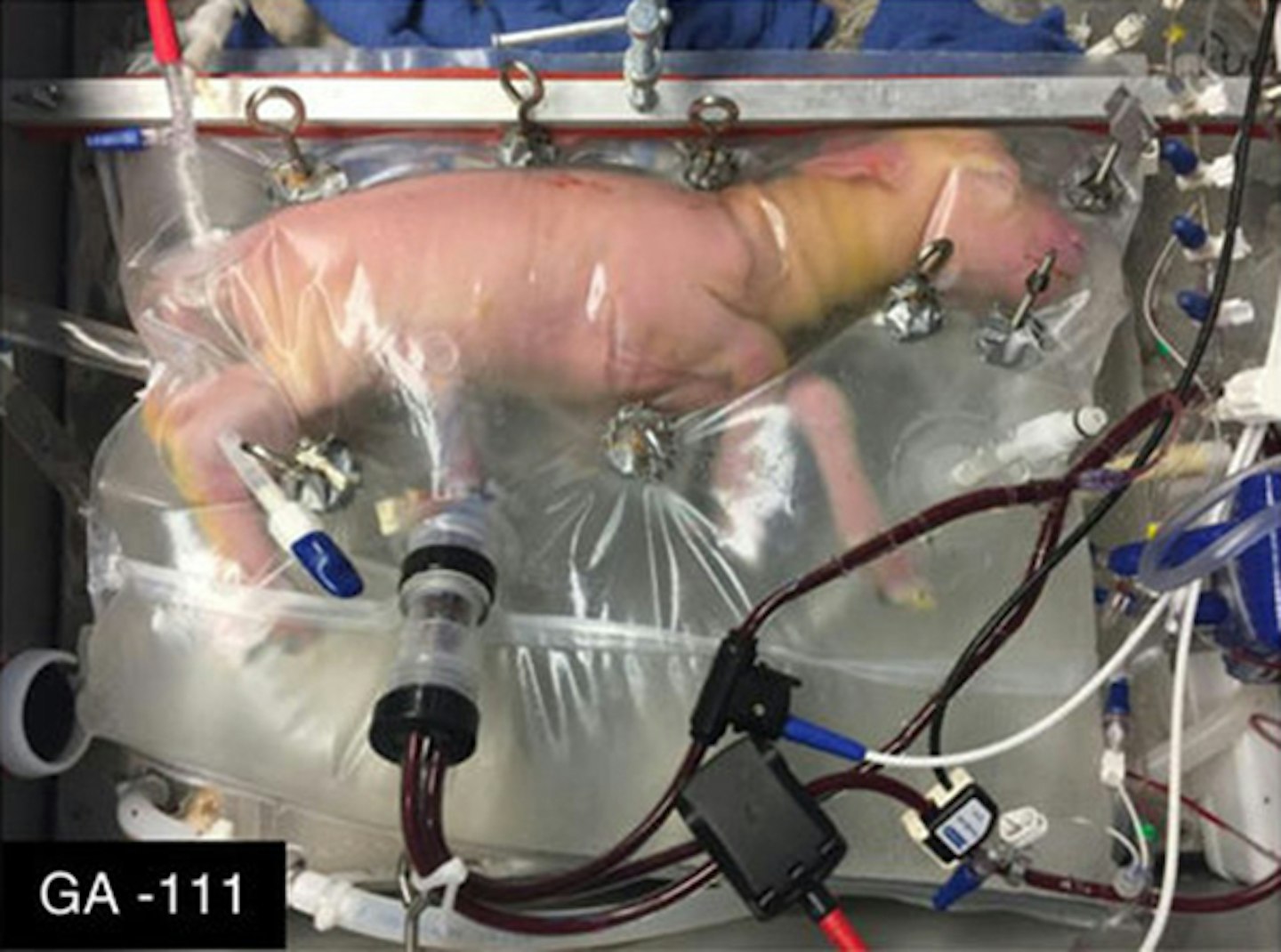
Study leader Alan W. Flake, MD, who is a surgeon and also Director of the Center for Fetal Research in the Center for Fetal Diagnosis and Treatment at CHOP, said: "Our system could prevent the severe morbidity suffered by extremely premature infants by potentially offering a medical technology that does not currently exist.
"These infants have an urgent need for a bridge between the mother's womb and the outside world. If we can develop an extra-uterine system to support growth and organ maturation for only a few weeks, we can dramatically improve outcomes for extremely premature babies."
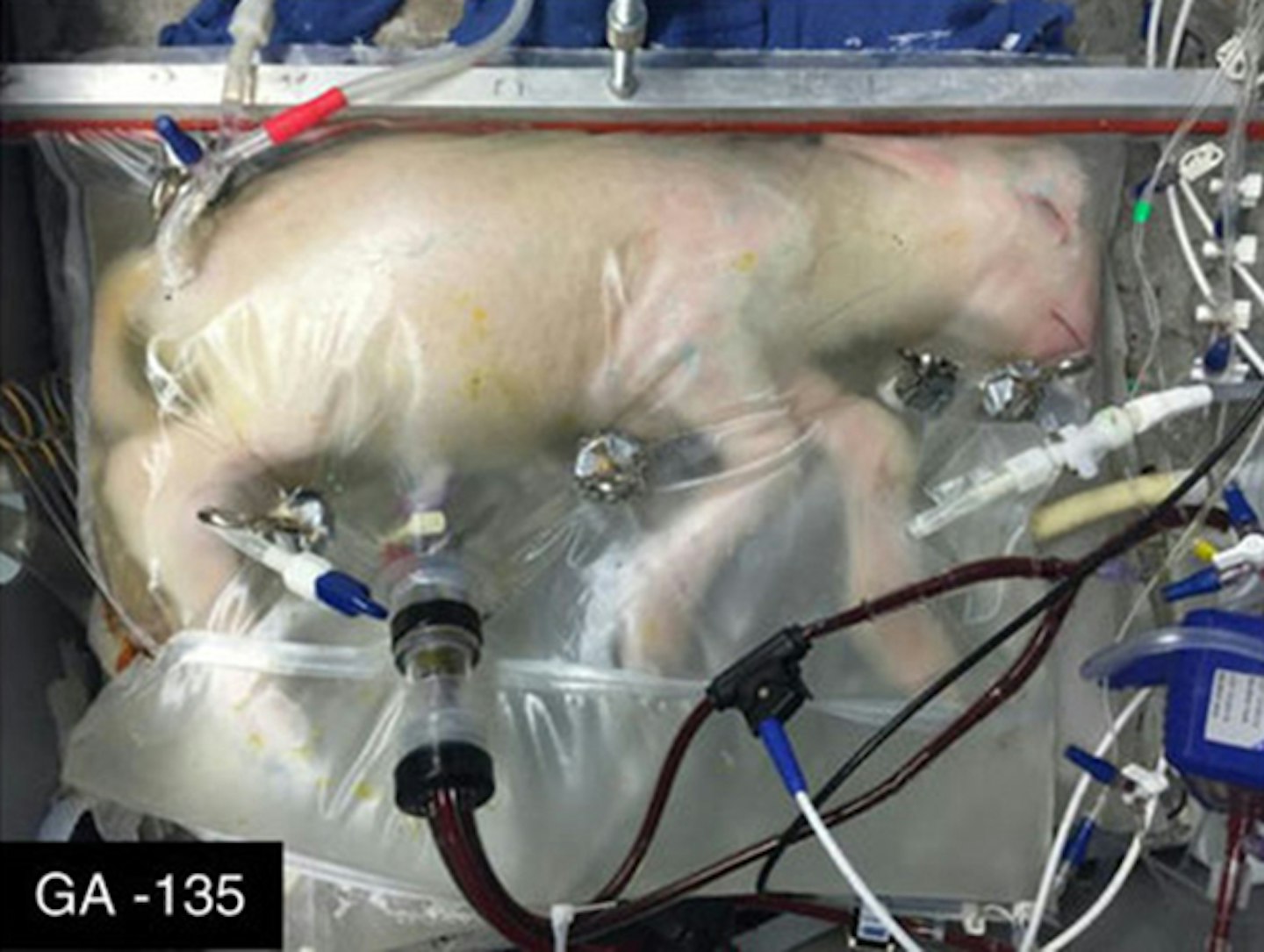
In the UK, a premature birth or "preterm" is a birth that occurs before 37 weeks of pregnancy. According to Tommys, a charity who fund research into miscarriage, stillbirth and premature births, around 60,000 babies every year in the UK are born prematurely and need specialist hospital care - that's one in nine babies born.
Although a premature birth can happen for any number of reasons, Tommys cites life-threatening diseases as being the cause for 25% of premature births. They also explain that in 40% of premature births, the reason is not known.
Survival rates of premature babies have dramatically increased over the years, but there is still a great number of families devastated by a premature birth where the baby does not survive.
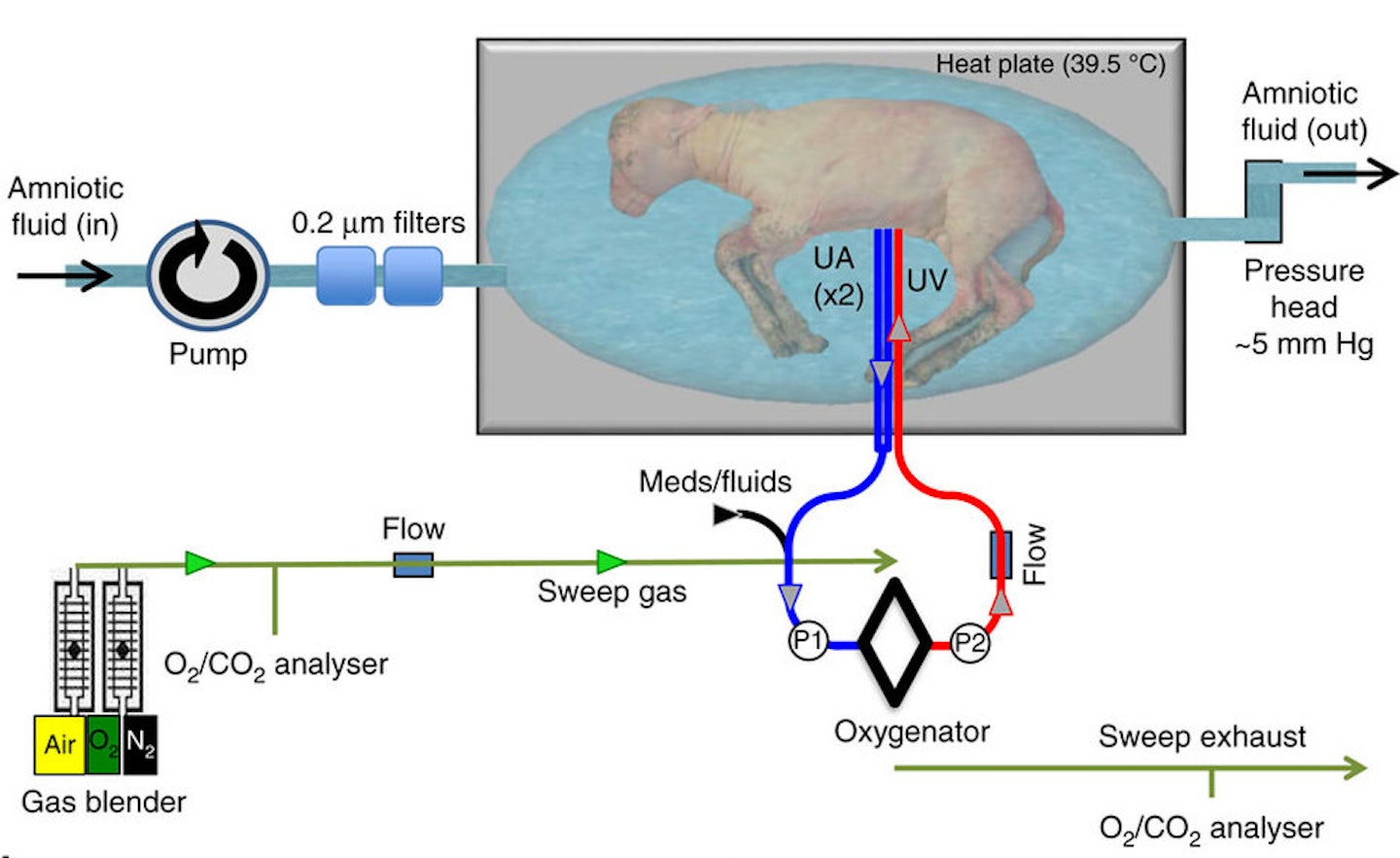
Professor Andrew Shennan, Clinical Director of Tommy's Prematurity Clinic in London, said: "Extreme prematurity continues to challenge doctors and can be associated with a range of issues as children grow up, such as behavioural problems or even severe abnormalities such as cerebral palsy.
"In recent years, care for mother and baby has improved dramatically. For the few that do deliver very early, this new development may prove promising. However, maintaining a pregnancy outside the body is highly complicated, and it will probably be many years before this is a reality in humans, if at all.
"All research in this area is welcomed given its severe impact. However, there are many promising intiatives that focus on maintaining pregnancies within the mother. This research should remain a priority, as the mother's womb continues to be the best environment for a baby."
The research team explained that the system took around three years to develop, and the eight lambs that were tested on were physiologically equivalent to a human baby at 23 or 24-weeks.
When inside the system, the lambs indicated that they were breathing normally, swallowing, opening their eyes and even grew wool.
Emily Partridge, MD, PhD, who is a Research Fellow at CHOP, really drove the programme forward as she has previously cared for critically premature babies. She said: "Those infants really struck a chord with me."
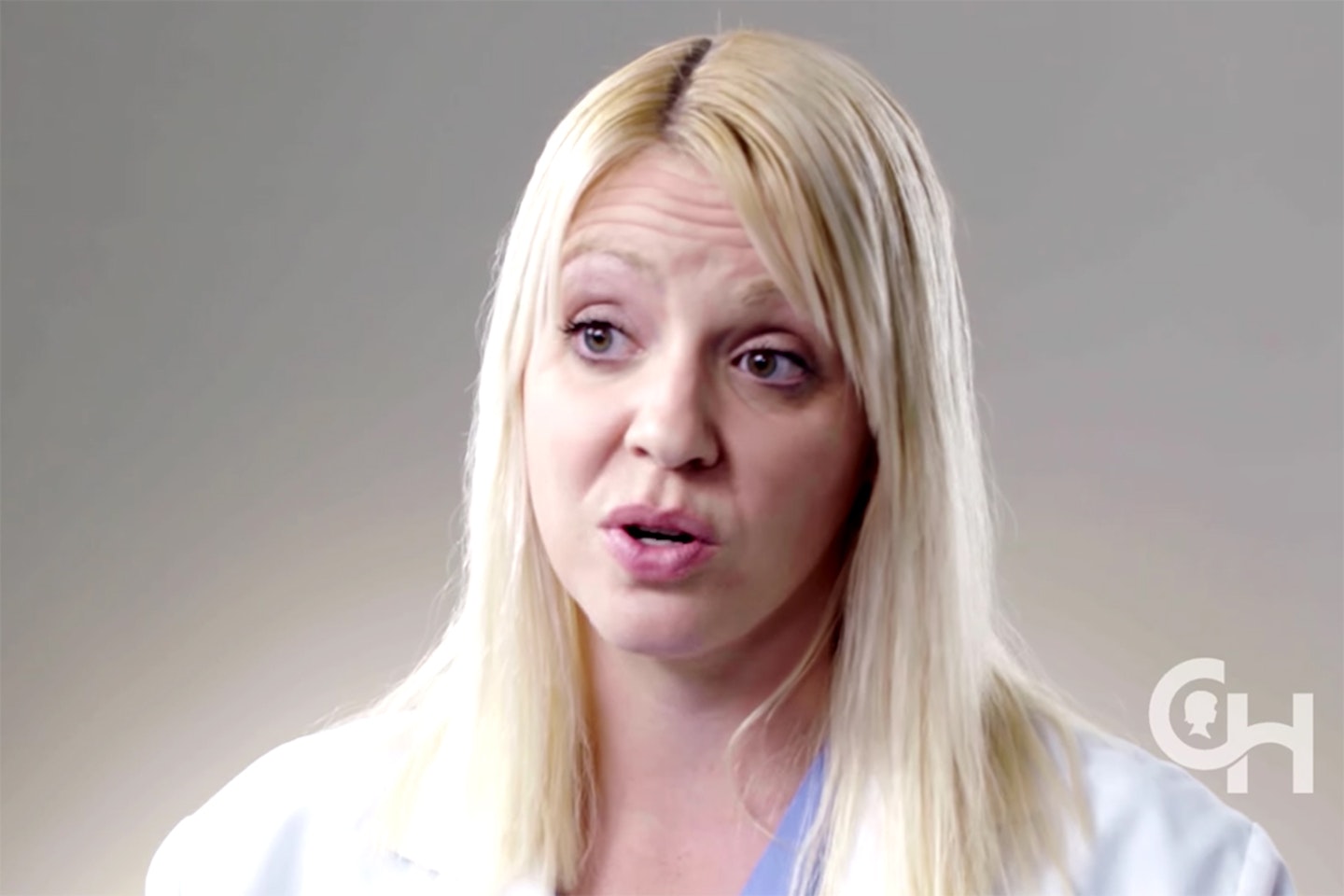
In a video uploaded by CHOP's YouTube channel, Dr Flake explains why the team used lambs: "We chose the lamb as an animal model for a number of reasons.
"Most of what we know about human foetal development is from the lamb. All of the physiologic research over the past 50 or 60 years that have told us about the foetal circulation, about developmental events, most of it has been from the lamb."
Well, you learn something new every day! We hope this breakthrough is able to help human babies in the future.
Have you or a loved one ever lost a baby due to a premature birth? Do you think something like this would be important to have in this country? Let us know over on Facebook and Twitter.
Read more like this:
Mum's premature baby left to die because he was technically a 'miscarriage'
10 beautiful stillbirth & miscarriage poems to help grieving mothers
